12 Olympians competing in Tokyo who have opened up about their mental health

- Naomi Osaka dropped out of the French Open to focus on her mental health.
- Swimmer Simone Manuel shared that she was struggling with overtraining syndrome.
- Gymnast Sam Mikulak said Michael Phelps inspired him to go to therapy.
Swimmer Simone Manuel was diagnosed with overtraining syndrome and called her mental health struggles her "biggest fight."
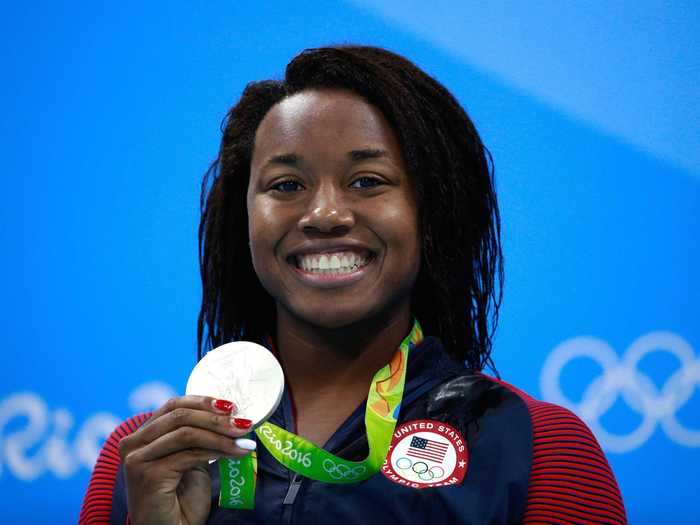
After Manuel didn't qualify for the women's 100-meter freestyle in the Olympic trials — an event she won a gold medal at in 2016 — she revealed she'd been dealing with depression, anxiety, and insomnia as a result of overtraining syndrome.
"This was definitely my biggest fight," Manuel said in an emotional press conference in June. "It started a little bit in January. I think it was something that I didn't quite notice until my body like completely crashed."
Manuel also cited racial justice issues as contributing to her burnout.
"This last year for the Black community has been brutal, and I can't say that that wasn't something that I saw," she said. "It's not something I can ignore, and it was just another factor that can influence you, mentally, in a draining way. I think that those were two things that played into a little bit of the overtraining in some ways."
Manuel did qualify for the Olympics in the women's 50-meter freestyle.
Weightlifter Kate Nye shared her experience of being diagnosed with bipolar disorder to help shatter stigmas.
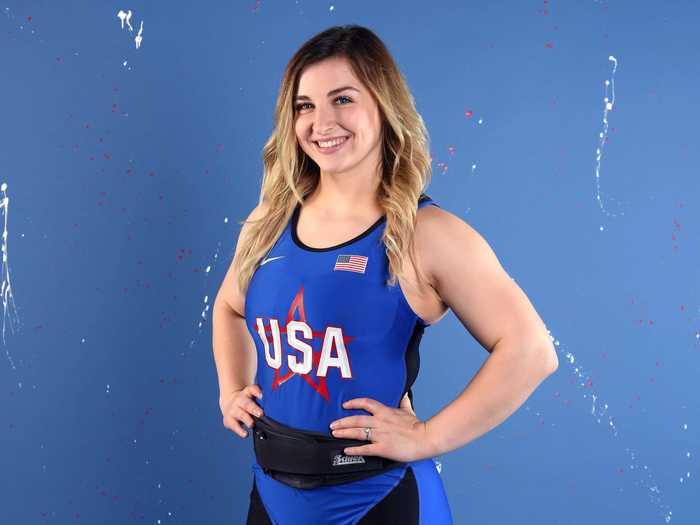
Nye, who was named IWF World Weightlifter of the Year in 2019, told NBC she was "offended" when she was first diagnosed with bipolar disorder but came to realize her reaction was a product of the stigma surrounding the condition.
"I just want to put it out there so other people don't feel that way," she said. "You shouldn't attach words like 'crazy' or anything like that to a literal mental health issue. I've had so many fans reach out and thank me for talking about it and they have gone to a therapist because I've talked about it."
Tennis player Naomi Osaka published an essay about mental health in which she asked the press to give her "privacy and empathy."
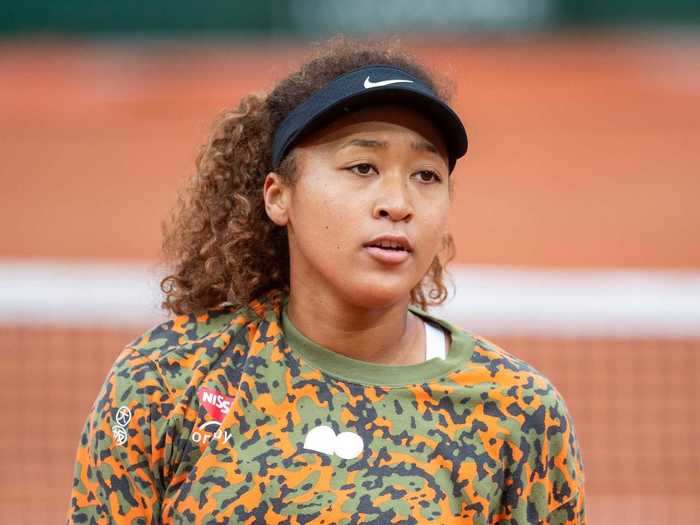
Osaka, a four-time Grand Slam champion, dropped out of the French Open and missed Wimbledon to focus on her mental health before competing in the Olympics.
The 23-year-old tennis superstar "wanted to skip press conferences at Roland Garros to exercise self-care and preservation of my mental health," she wrote for Time earlier this month. She had released a statement about her media blackout ahead of the French Open, but the tournament fined her $15,000 when she refused to attend her first press conference.
Soon after, she retired from the French Open and explained in a social media post that she gets "huge waves of anxiety" before speaking to the media and had experienced bouts of depression in the lead-up to the tournament.
Osaka wrote that she "never wanted to be a distraction" from one of the most distinguished tennis events of the year.
"I felt under a great amount of pressure to disclose my symptoms — frankly because the press and the tournament did not believe me," Osaka wrote. "I do not wish that on anyone and hope that we can enact measures to protect athletes, especially the fragile ones. I also do not want to have to engage in a scrutiny of my personal medical history ever again."
Boxer Virginia "Ginny" Fuchs told Salon that living with OCD is "a battle every day."
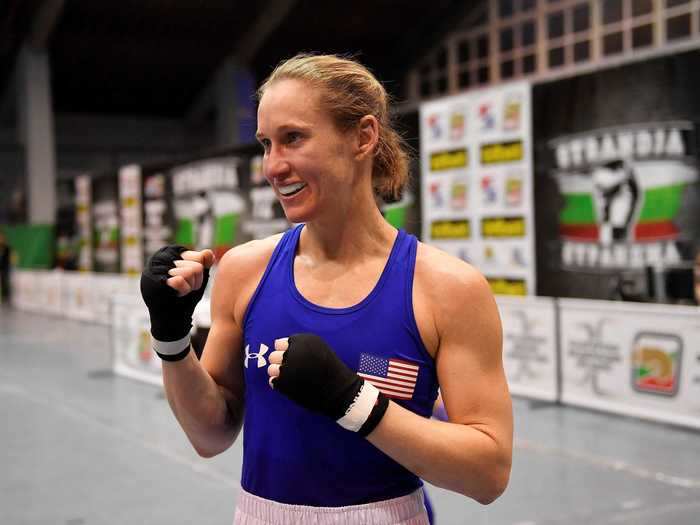
Fuchs shared her experience living with OCD on the PBS series "Mysteries of Mental Illness" in June. She said she was inspired to share her story more publicly when she opened up to US boxing teammates she was living and traveling with, who noticed her obsessive-compulsive behaviors.
"When I saw how they reacted and wanted to learn and understand it more, it made me feel more comfortable talking about it to people, getting the word out there, helping people understand not just with OCD but mental health in general, there's a lot of people you'll see every day but you don't know what they're struggling with because you don't necessarily see it," she told Salon in June. "If you talk about it and help people understand, it can break that barrier of being 'crazy' or 'weird,' a title people might put on mental health."
Brittney Reese shared that she started seeing a sports psychologist after a hip injury took a toll on her mental health.
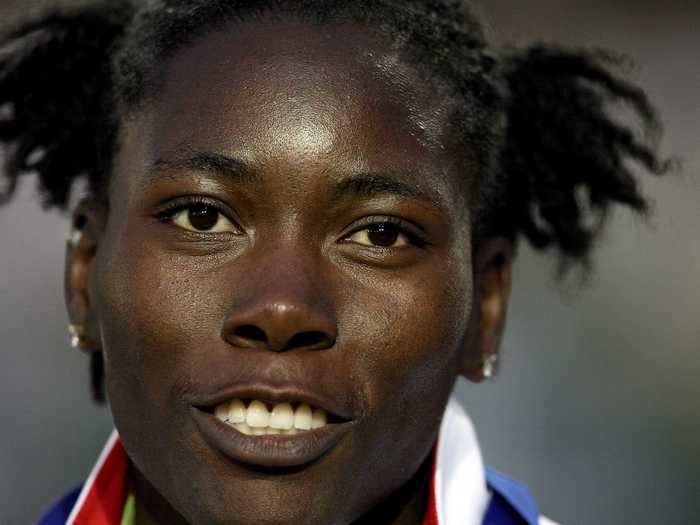
The long jumper needed surgery for the injury in 2013, a year after winning gold in her event.
"I feel like the hip injury really messed me up because I know what I'm capable of," Reese told USA Today during the last Summer Olympics, in 2016. "To see myself not make a podium, to see myself not make a final, to see myself not even jump seven meters really put me in a bad position."
She returned to the Olympics in 2016 and took silver.
Gymnast Sam Mikulak said Michael Phelps helped inspire him to go to therapy.
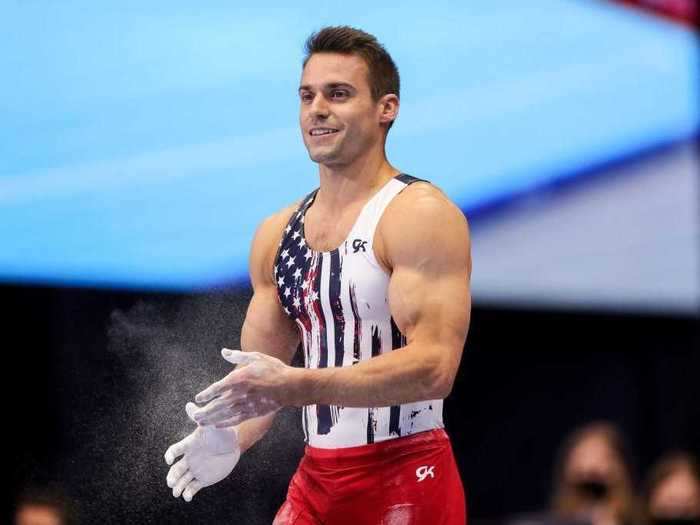
Mikulak spoke about his journey on a USA Gymnastics panel about mental health in May, saying that Phelps' story was "eye-opening." Phelps has been open about his struggles with his mental health.
"There's so many external factors that happened through my life that made me feel like me going to therapy meant I was going through a really hard time, and I never was able to actually see the benefits of therapy," he said. "And, you know, that kind of was just like something that I wish hadn't been instilled in me from a young age and doing the mental health panel was something that I was trying to break free of."
Shot putter Raven Saunders opened up about struggling with depression, anxiety, PTSD, and suicidal thoughts in a PBS documentary.
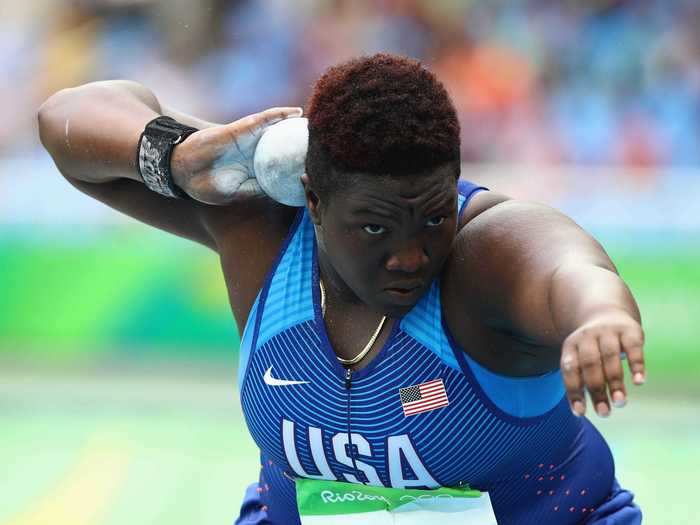
In a PBS documentary called "An Olympic Athlete Takes on Depression," Saunders shared that she contemplated ending her life at a particularly dark point in 2018 when she felt the "weight of the world resting on my chest." A text to her old therapist helped her get the support she needed.
"I'm doing a lot better," she said in an interview with Team USA in May. "I'm not going to make it seem like it's all peaches and cream, because that's not the truth when it comes to mental health. You still have your struggles, you're still going to have your battles. I don't want people to look at me and be like, 'Oh, she's got it all figured out.'"
Gymnastics "GOAT" Simone Biles told Glamour magazine that therapy helped her process emotions as a survivor of sexual abuse.
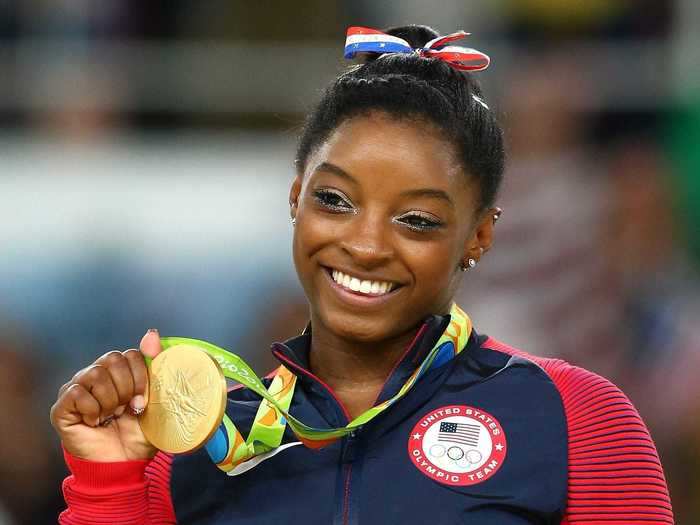
In 2018, Biles came forward to say she was one of the gymnasts who former USA gymnastics team doctor Larry Nassar sexually abused, joining numerous former teammates who had also made accusations against him. She told Glamour that she resisted therapy at first but ultimately found it helpful.
"I thought I could figure it out on my own, but that's sometimes not the case. And that's not something you should feel guilty or ashamed of," Biles told the magazine in June. "Once I got over that fact, I actually enjoyed it and looked forward to going to therapy. It's a safe space."
Allison Schmitt spoke about sinking into a depression after the 2012 Olympics and her cousin's suicide in 2015.
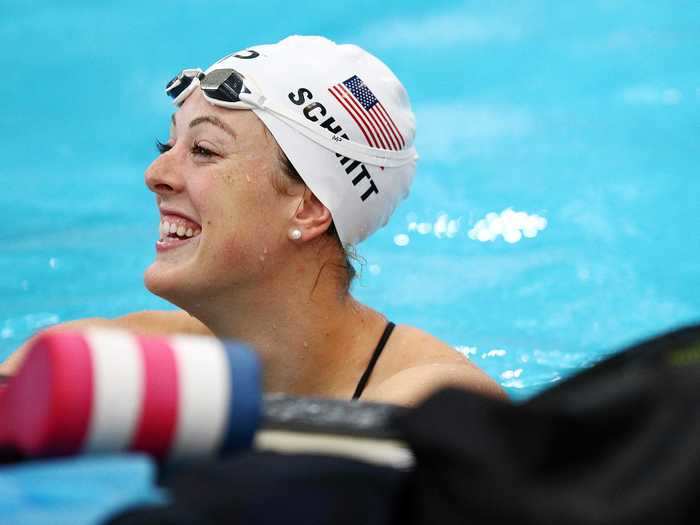
In a 2016 profile on ESPN, the swimmer shared how Michael Phelps saw that she was struggling and offered support, which spurred her to start seeing a therapist.
"Michael was standing right in front of [coach Bob Berman]. And he stops me, and he says, 'Hey. I know you're not yourself, I know maybe you're going through things. I've been through a lot, and I'm here for you if you need help.'"
Schmitt said her cousin's death in 2015 made her realize she wanted to share her own struggles with depression.
"I knew this was a time that I could save the next person who was struggling, the next person who thinks their life is not worth it," she said.
Sakura Kokumai of the US karate team sought support after she was verbally attacked for being Asian American.
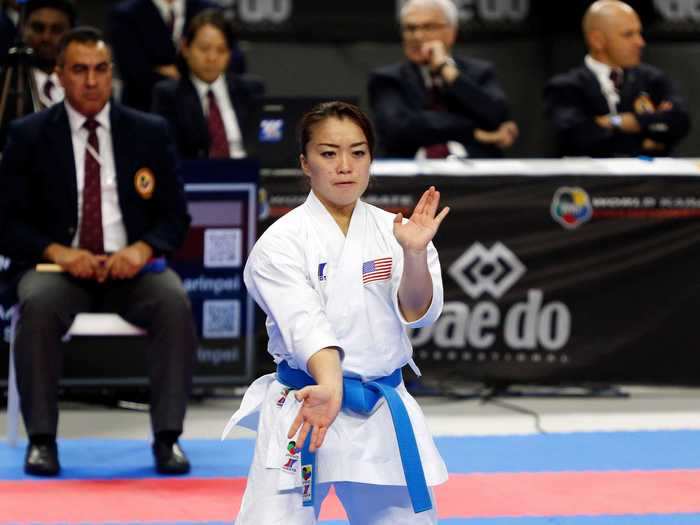
"I learned that over this year that I tend to train on my own and figure things out on my own, but I realized the importance of reaching out to people and just talking it through," she told USA Today in July. "Realizing it's OK to ask for help sometimes."
Beach volleyball player April Ross told Yahoo! that therapy helped her process the loss of her mother to breast cancer.
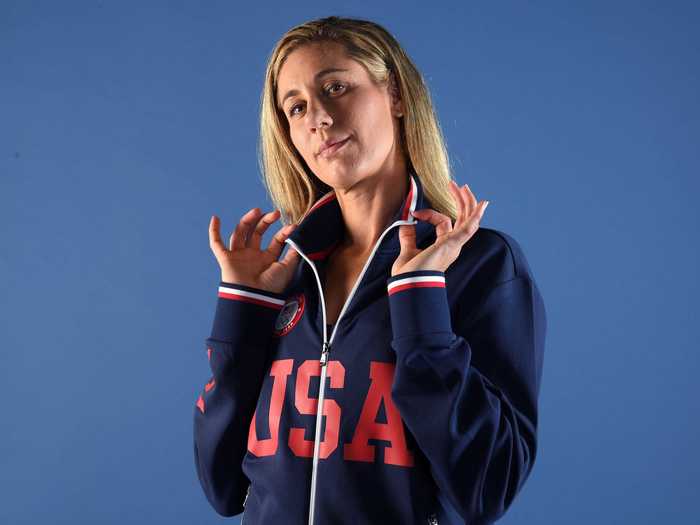
Ross' mother died of breast cancer in 2001.
"I was so young when she passed away that I didn't know how to really handle it, and I didn't handle it well," she told Yahoo! this year. "Luckily I had my volleyball team that really supported me and kind of helped me through that initial phase. But I think I've been dealing with it for a long time. I've gone to professional therapy during different periods of my life, and it's always kind of come back to that experience [of losing her]; that's really helped me work through it."
In August 2020, sprinter Noah Lyles shared on Twitter that he had started taking antidepressants.
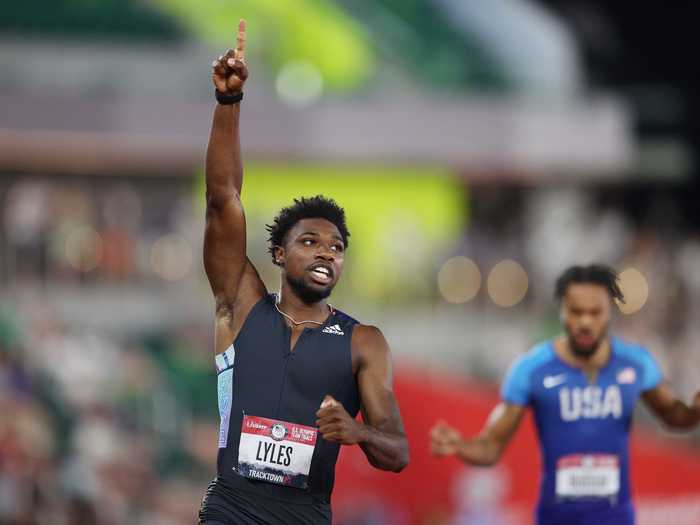
"Recently I decided to get on antidepressant medication," Lyles tweeted. "That was one of the best decisions I have made in a while. Since then I have been able to think with out the dark undertone in mind of nothing matters. Thank you God for mental Health."
READ MORE ARTICLES ON
Popular Right Now
Advertisement